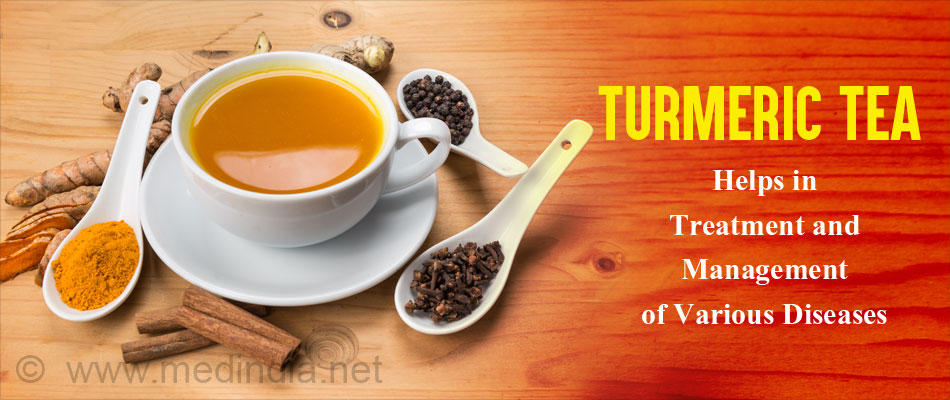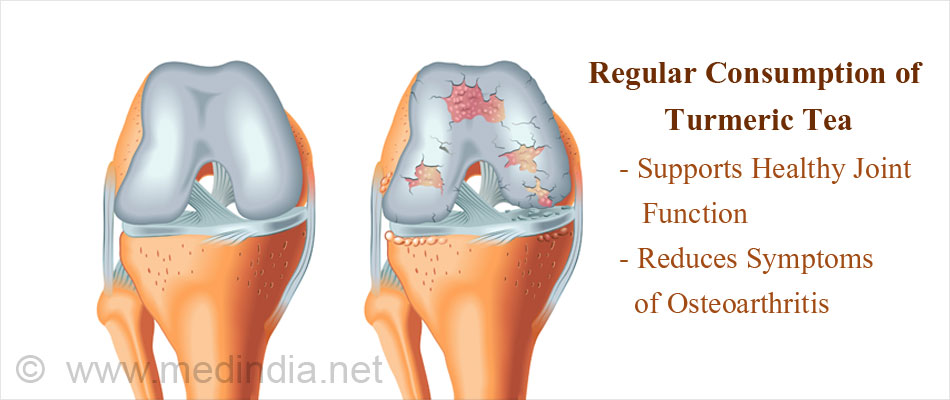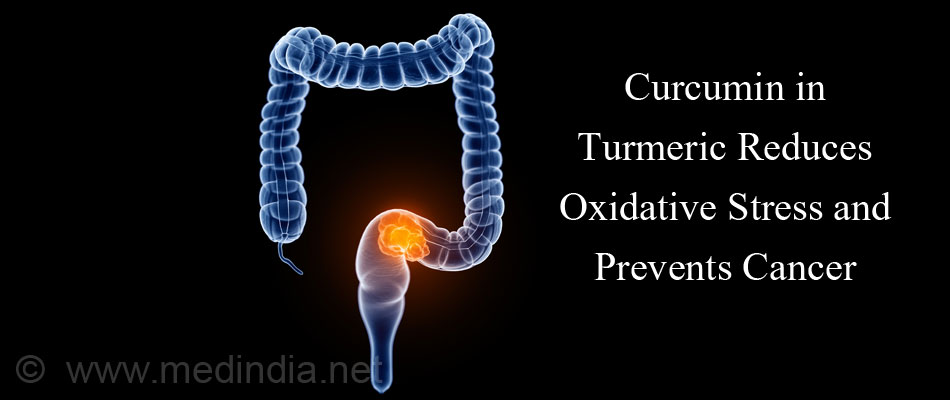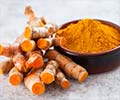- Recent Developments in Delivery, Bioavailability, Absorption and Metabolism of Curcumin: the Golden Pigment from Golden Spice - (https://www.ncbi.nlm.nih.gov/pmc/articles/pmc3918523/)
- The effect of curcumin (turmeric) on Alzheimer's disease: An overview - (https://www.ncbi.nlm.nih.gov/pmc/articles/pmc2781139/)
- Curcumin: a new paradigm and therapeutic opportunity for the treatment of osteoarthritis: curcumin for osteoarthritis management - (https://www.ncbi.nlm.nih.gov/pmc/articles/pmc3591524/)
- A Potential Role of the Curry Spice Curcumin in Alzheimer’s Disease - (https://www.ncbi.nlm.nih.gov/pmc/articles/pmc1702408/#!po=11.4035)
- The efficacy of Curcuma Longa L. extract as an adjuvant therapy in primary knee osteoarthritis: a randomized control trial - (https://www.ncbi.nlm.nih.gov/m/pubmed/23964444/)
- Curcumin for inflammatory bowel disease: a review of human studies - (https://www.ncbi.nlm.nih.gov/m/pubmed/21649456/)
- Curcumin Extract for Prevention of Type 2 Diabetes - (http://care.diabetesjournals.org/content/35/11/2121)
- Potency of turmeric (Curcuma longa L.) extract and curcumin as anti-obesity by inhibiting the cholesterol and triglycerides synthesis in HepG2 cells - (http://www.msjonline.org/index.php/ijrms/article/download/1463/1392)
- Antimicrobial activity of turmeric extract and its potential use in food industry - (https://www.ncbi.nlm.nih.gov/pmc/articles/pmc4375173/#!po=37.5000)
- Curcuma longa and Colon Cancer: Evidence and Mechanisms - (https://www.idosi.org/wjms/8(3)13/19.pdf)
- Evaluation of Efficacy of Curcumin as an Add-on therapy in Patients of Bronchial Asthma - (https://www.ncbi.nlm.nih.gov/pmc/articles/pmc4190737/)
What is Turmeric?
Turmeric is one of the oldest spices which has been in use for 2500 years and is a huge part of Ayurvedic medicine in India. By 700 AD, it reached China, Africa and West Africa gaining popularity all around the globe.
Turmeric (Curcuma longa) is popularly known as the 'golden spice' and 'Indian saffron'. It is native to India and belongs to the ginger family (Zingiberaceae).

Curcumin is an active compound present in turmeric that helps in cancer prevention, pre-mature aging, liver protection, improving fertility, lowering high blood glucose levels, improving lipid profile and relieving joint pain and inflammation. Today, science is discovering a long list of diseases and ailments that can be treated with turmeric.
Turmeric plant has dull yellow flowers and it grows up to 3 to 5 feet tall. The roots of this plant are boiled, dried and then ground to make turmeric powder. Turmeric tea is an anti-inflammatory drink that possesses potent healing properties. It is an immune-boosting drink that keeps diseases and disorders at bay.
Health Benefits of Turmeric Tea
In recent years, turmeric has attracted the attention of scientists due to its medicinal properties.
Anti-Asthmatic Agent
Asthma is an inflammatory condition in which airways become inflamed and thus, breathing becomes difficult.
Curcumin present in turmeric inhibits inflammatory factors and modulates the inflammatory response as well. Drop in the level of inflammation improves overall breathing and lowers the symptoms of asthma such as cough, wheezing, difficulty in breathing and chest pain. Further, curcumin fights oxidative stress and prevents blockage of airways.
Effect on Alzheimer's Disease
Alzheimer's disease is a neurodegenerative disorder that affects cognition, memory, mood and behavior.
Curcumin present in turmeric enhances overall health of brain cells. Free radicals attack the brain cells and thus affect cognition and behavior. This plays a vital role in pathogenesis of Alzheimer's disease.
Curcumin exerts antioxidant activity and thus reduces the load of free radicals. Further, curcumin reduces the inflammation of brain, modulates inflammatory changes and plays a role in slowing Alzheimer's disease.
Helps In The Treatment Of Osteoarthritis
Studies have revealed that curcumin present in turmeric lowers pain, swelling and joint inflammation associated with osteoarthritis. Curcumin has anti-inflammatory properties and thus it inhibits inflammatory compounds. This action of curcumin reduces symptoms of osteoarthritis.

It was further found that turmeric is more effective when its intake is combined with medicines that are used to treat osteoarthritis.
Research has also found that daily intake of turmeric or turmeric tea improves movement and function of joints and thus reduces joint stiffness.
Management Of Inflammatory Bowel Disease (IBD)
IBD is a chronic condition that involves inflammation of any part of the digestive tract. Turmeric works by reducing the negative effect of inflammatory compounds on the digestive tract.
Studies have found that individuals treated with turmeric experienced a reduction in IBD symptoms such as abdominal pain, rectal bleeding and diarrhea.
Furthermore, curcumin reduces the attack of free radicals on the inner lining of the digestive tract and improves overall gut health. Thus, turmeric can be used for the management of IBD without any side-effects.
Management Of Diabetes Mellitus
High levels of blood glucose for a prolonged period of time affects the eyes, nerves, kidneys, liver and heart.
Research has observed that daily consumption of turmeric, for example in the form of turmeric tea, is associated with less incidence of diabetic complications. Such an effect is attributed to the antioxidant and anti-inflammatory activity of turmeric.
Increased levels of oxidative stress is associated with high blood glucose levels. Curcumin present in turmeric scavenges free radicals and reduces the burden of oxidative stress. This, in turn, helps in bringing back blood glucose level within normal range.
An interesting study found that curcumin prevents the onset of type 2 diabetes mellitus in pre-diabetic individuals by improving the function of beta-cells (pancreatic cells that secrete insulin).
Furthermore, curcumin reduces insulin resistance and improves insulin sensitivity. This results in better uptake of glucose by the cells and thus, it is used as a source of energy.

Hypolipidemic Action
Studies have observed that curcumin present in turmeric inhibits the formation of triglycerides and cholesterol in the body. Such a drop in these levels further reduces obesity.
Turmeric down regulates the gene expression that is involved in the accumulation of fat. It increases the excretion of cholesterol and reduces its overall absorption.
Regular consumption of curcumin from turmeric results in decreased cholesterol and triglyceride levels in blood and liver. It further increases the level of HDL (good) cholesterol which is heart-protective.
Anti-Microbial Activity
Since ancient times turmeric has been used as a natural preservative to inhibit the growth of bacteria in food. Turmeric prevents spoilage of food that may occur due to bacterial and fungal growth.
Furthermore, turmeric also prevents the development of undesirable smell and taste in foods. Thus, turmeric increases the shelf-life of different foods and keeps it fit for consumption.
The anti-microbial, antibacterial and antifungal activity of turmeric is attributed to the presence of certain active compounds such as curcumin, curcuminoids, essential oil, turmeric oil and tumerol in it.
Anti-Cancer Activity
An array of studies has shown that curcumin possesses anti-cancer activity. Regular intake of turmeric suppresses the growth of tumor. It further works by inhibiting the multiplication and spread of cancer cells to other parts of the body.
Research has also found that both oral intake as well as topical application of turmeric helps in the treatment of mammary cancer.
Positive effect of curcumin has been observed against colon cancer. Turmeric possesses antioxidant activity. It reduces the load of free radicals and lowers oxidative stress. Oxidative stress plays an important role in the development of cancer. Therefore, drop in the levels of oxidative stress helps in the treatment and management of cancer.

Liver Protection
Research has shown that turmeric plays a positive role in the treatment and management of liver diseases. High intake of alcohol may increase the production of free radicals that may further damage the liver. Turmeric exhibits antioxidant property that scavenges free radicals and combats oxidative stress.
Curcumin further helps in reducing level of liver enzymes that are otherwise high during liver damage. Turmeric improves the health of liver cells and tissue and prevents the death of liver tissue.
Heart Protection
Studies have observed that curcumin present in turmeric prevents the formation of clot and atherosclerotic plaque. This helps in better flow of the blood all throughout the body.
Besides this, turmeric lowers the level of total and Low-Density Lipoprotein (LDL) or bad cholesterol and triglyceride levels which are a major risk factor for heart disease.
It further lowers the level of oxidative stress and protects the heart against reactive oxygen species. By reducing oxidative stress, curcumin enhances the availability of nitric oxide. Nitric oxide is a compound that improves the inner lining of blood vessel and ensures smooth blood flow all throughout the body.
Recipes Using Turmeric Tea
Here is an easy recipe of turmeric tea-
- In a vessel, boil 2 cups of water
- Add half a teaspoon ground turmeric
- Allow it to simmer for 5 to 10 minutes
- Strain the tea into a cup
- You can enjoy your piping hot cup of turmeric tea by adding some honey, lemon juice or ginger juice
- Add a dash of pepper powder to turmeric tea to enhance the availability and absorption of curcumin










